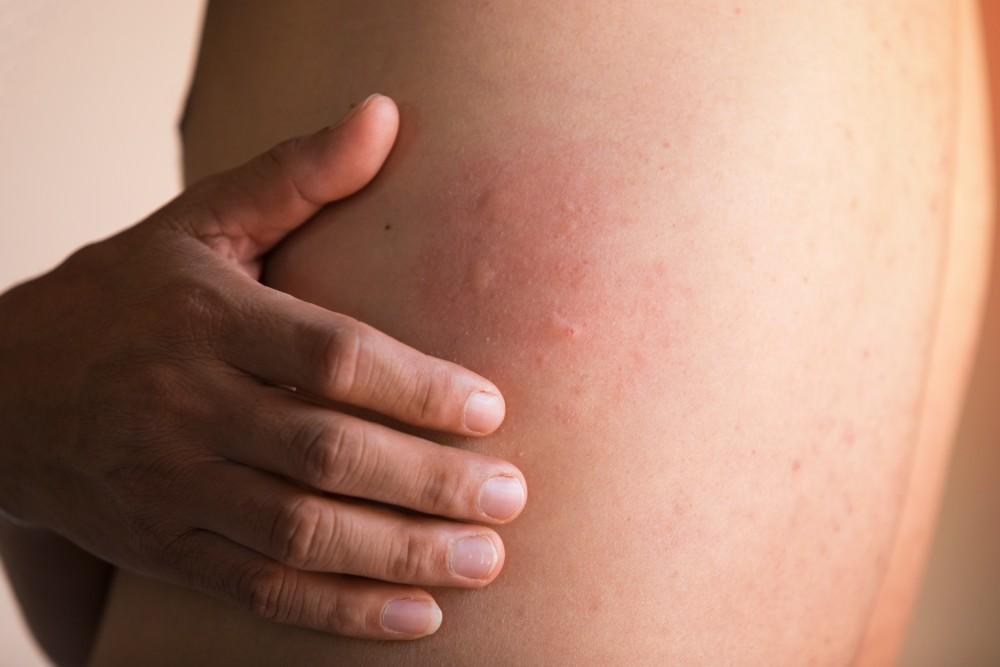
5 Ways to Treat Your Chronic Hives

What’s the worst thing about the raised red bumps and welts appearing on your skin for weeks? For most people who develop chronic hives, the most aggravating thing about them isn’t how they look or the itchy discomfort they cause but not knowing why they appear in the first place.
While it’s always helpful to know what’s triggering recurrent hives, in most cases, it isn’t possible to pinpoint their underlying cause. But that doesn’t mean you can’t get relief.
As a board-certified allergist and immunologist with decades of experience, Dr. Catherine Fuller provides comprehensive care for patients of all ages who are dealing with chronic hives in the West Los Angeles area. Here, Dr. Fuller discusses the ins and outs of chronic hives and offers a list of medical interventions and lifestyle changes that can provide effective relief.
A short tutorial on chronic hives
Chronic hives are itchy, raised red bumps or splotches that appear on your skin at least twice a week for six weeks or longer. This irritating and often perplexing condition is known by its medical term, chronic idiopathic urticaria, which means hives that come on suddenly, occur for no known reason, and persist even with treatment.
Unlike acute hives, which tend to fade within 24 hours and don’t reoccur for longer than six weeks, chronic hives appear and reappear routinely for many weeks, months, or even years.
Although chronic hives can be the product of an allergic reaction, recurrent hive flare-ups are just as likely to be triggered by physical factors like sunlight, hot or cold temperatures, stress, or pressure from clothing. Certain medical conditions can also cause chronic hives, including infections and autoimmune disorders.
About one in five people (20%) who develop chronic hives also have an autoimmune disorder, such as lupus, thyroid disease, celiac disease, or rheumatoid arthritis.
Management of chronic hives
One of the best ways to control chronic hives is to avoid known triggers or manage the health condition causing them. But what if there’s no underlying health condition, and you don’t know what’s behind your chronic hive problem?
Most people with chronic hives find themselves in this situation. But even if you don’t have triggers to avoid or manage, you can still attain relief with these effective treatment strategies:
1. Anti-itch medications
Chronic hive treatment usually begins with over-the-counter (OTC) anti-itch medications or antihistamines. If OTC antihistamines don’t deliver sufficient relief, prescription antihistamines that don’t cause drowsiness may be more effective.
2. Monthly allergy shots
When persistent hives don’t respond to daily antihistamine treatment, a monthly injection of a medication called omalizumab (Xolair®) is often the next best step.
Xolair is an innovative biologic drug that alleviates chronic hives by blocking the production of immunoglobulin E (IgE). High IgE levels trigger severe allergy-related problems like persistent hives and asthma.
3. Oral steroidal medications
Oral corticosteroids like prednisone alter immune system function to reduce skin redness, swelling, and itching caused by chronic hives. These steroidal medications often work when allergy medicines don’t.
4. Learn how to calm the itch
When hive flare-ups occur, there are several ways to relieve the constant itch, redness, and swelling they cause. We recommend that you:
- Wear loose, smooth cotton clothing that isn’t scratchy
- Soothe your skin with an OTC anti-itch cream or lotion
- Avoid overheating and protect your skin from the sun
- Apply cool compresses (unless cold triggers your hives)
- Take a cool bath with baking soda to relieve itchiness
- Take comfortable, cool showers several times a day
Because hives feel worse on drier skin, it’s vital to maintain well-moisturized skin with a fragrance-free, hypoallergenic lotion or cream.
5. Manage your stress levels
High-stress levels or anxiety can trigger or worsen many skin conditions, including chronic hives. If you frequently feel stressed or anxious, look for healthy ways to calm your nerves and emotions. Daily exercise, mindfulness practices, breathing exercises, and time outdoors are several stress-easing strategies.
Get relief from chronic hives
If you’re dealing with chronic hives, Dr. Fuller can help you rule out possible causes, including serious health problems. And even without verified causes or triggers, she can provide an individually tailored treatment plan to help you attain long-lasting relief.
To learn more or schedule a visit at Catherine Fuller, MD, in West Los Angeles, California, call 310-828-7978 today or use our online booking feature to make an appointment any time.
You Might Also Enjoy...


Why Are My Allergies Worse in Summer?

5 Ways to Stay Prepared When You Have Food Allergies

Common Foods That Cause Hives

4 Tips to Relieve Congestion From a Sinus Infection

